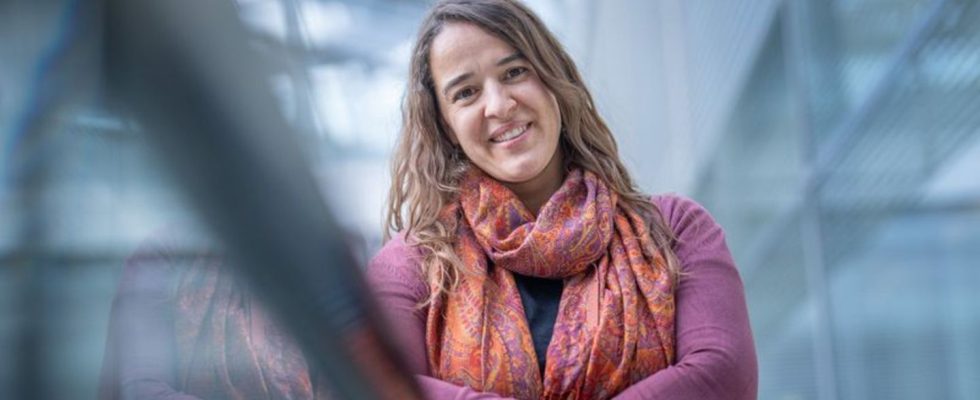parties
Deaf MP Heubach sets an example in the Bundestag
Heike Heubach comes to parliament as the SPD’s replacement. photo
© Michael Kappeler/dpa
The replacement, Heike Heubach, is a novelty in the Bundestag: for the first time there is a deaf member. This poses challenges – but the Social Democrat is confident.
Chancellor Olaf Scholz welcomed the new SPD MP Heike Heubach at her first parliamentary group meeting on Tuesday with her hands stretched up, gesturing for applause. There was a firm, warm hug from parliamentary group leader Rolf Mützenich.
The Social Democrat from Bavaria is moving into the Bundestag as a replacement – not unusual, but something is new: the 44-year-old is the first deaf member of the Bundestag. This Thursday is her first day in plenary.
“After the previous media hustle and bustle, I noticed for the first time in the middle of the group meeting that I was sitting here in the group meeting and then also as a member of Parliament in the future,” Heubach told the German Press Agency (dpa). She was pleasantly surprised by the variety of topics and the open exchange.
Always in the shadow of Heubach on her first day in the Bundestag is a sign language interpreter. Whether in a conversation with members of parliament or during a photo session on one of the Bundestag terraces – the interpreter always signs what is being said and in turn translates the signs into spoken language. “It works really well, we become a well-coordinated team after just a short time,” says Heubach about her first experiences with her team of interpreters. She doesn’t have to worry about missing anything. “The interpreters have the task of translating everything, and I trust that.”
Heubach: “Everything is going like clockwork at the moment”
According to the Bundestag administration, she will have a permanent place in the plenary session in the ranks of the SPD parliamentary group – unlike her colleagues. A sign language interpreter near her should translate the speeches of other MPs and make her questions understandable to the plenary session. There should also be a corresponding solution for her work in the committee – Heubach will work on the building committee. “Housing must become affordable again,” she says.
The new MP would also like to devote herself to equal rights for women and men, environmental protection and the visibility of people with disabilities. When she gives her first speech in the chamber, a simultaneous interpreter will be given a seat with a microphone next to the stenographers to translate the speech for the other MPs. “The organization of the Bundestag administration, the parliamentary group and the interpreters went very well. We are all in a learning process,” says Heubach. “At the moment everything is going like clockwork.”
The mother of two adult daughters only joined the SPD in November 2019. In the 2021 federal election, the trained industrial clerk, who previously worked for a Bavarian energy company, ran in the Augsburg-Land constituency and narrowly missed out on entering parliament. Heubach is now taking the place of SPD politician Uli Grötsch, who was elected federal police commissioner last week.
Time for a more inclusive political landscape
Heubach’s entry marks the beginning of a new development in the Bundestag, which also sets an example. The German Association of the Deaf recognizes Heubach’s arrival as a “great achievement” of the SPD politician. President Helmut Vogel tells dpa that she fought hard for her participation in the democratic process.
“We hope that Heike Heubach’s example will help to increase the visibility and acceptance of deaf people in politics.” Society must recognize that deaf people can be politically active, but need support in communication. “It is time for us all to fight together for a more inclusive political landscape.”
The Federal Government’s Commissioner for the Disabled, Jürgen Dusel, emphasizes that the Bundestag must now become barrier-free – “and that from one day to the next. That should actually be the norm and not a challenge.” He would like the MPs and the Bundestag administration to be “open and willing to see Heike Heubach’s work as an opportunity and enrichment, and to seize the opportunity to be a role model for inclusion.” Ultimately, parliament should be a reflection of society. Only through equal rights and encounters could reservations be overcome.

